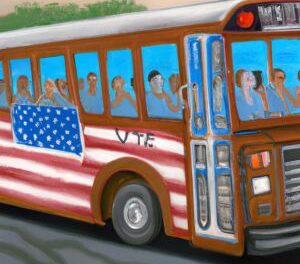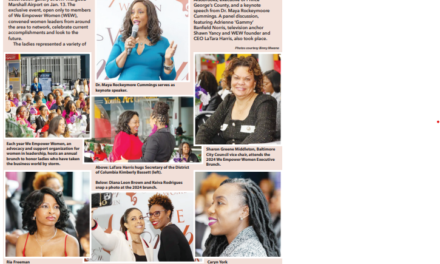By Reuben Greene,
Special to the AFRO
Community activist Marvin L. “Doc” Cheatham Sr. is addressing the years-long problem of grocery store closures by proposing a free food giveaway initiative for Spring and Summer 2023.
Cheatham is asking that community groups participate in a monthly free food giveaway and flea market at Easterwood/Sandtown Park and Playground, located between the 1518 and 1556 blocks of N. McKean Ave.
After speaking directly with ‘Doc’ Cheatham about his concerns, he noted that one-third of the citizens in Baltimore City are suffering from food deserts and it’s only getting worse– especially with the recent closure of Price Rite Marketplace in the Mount Clare Junction-Pigtown area.
“The stats used to be a quarter of Baltimore City residents, but now it’s a third,” said Cheatham. “Most of the City’s elected officials don’t understand the plight of residents because none of them live in the affected neighborhoods.”
The U.S. Department of Agriculture reported in December of 2022 that the cost of feeding a healthy diet to a family of four in the U.S. can run $233.10 weekly and $966.60 monthly.
During the month of January 2023, the cost of eggs skyrocketed to $10 a dozen with no decrease in sight.
Food insecurity, or a lack of access to nutritious food, is a significant issue in Baltimore City, particularly in food deserts, or neighborhoods with limited access to supermarkets. These areas are often underserved and have high concentrations of poverty.
Baltimore tradition of “arrabers” pulling fresh fruits and vegetables through the urban streets has survived into 2023– in part– because of the food deserts plaguing the elderly population of Charm City.

“Imagine being an 80-year-old resident attempting to walk a mile and half with all your groceries,” said Cheatham.
Per the Baltimore City Health Department food deserts are determined by 4 major factors.
A food desert in Baltimore City is defined as:
- An area where the distance to a supermarket or supermarket alternative is more than a quarter of a mile
- The median household income is at or below 185 percent of the Federal Poverty Level
- Over 30 percent of households have no vehicle available
- The average Healthy Food Availability Index (HFAI) score for all food stores is low
The Baltimore City Health Department reports that as of 2022, food deserts affected 31 percent of Black residents, who disproportionately live in what is classified as “Healthy Food Priority Areas.” This number is in stark contrast to any other racial group– especially when compared to the 9 percent of White residents in “Heathy Food Priority Areas.”
On average, about 28 percent of all of Baltimore’s children live in food deserts on any given day. Seniors also live in these areas at disproportionate rates, with 24 percent of all of Baltimore’s seniors struggling to access fresh, quality food options in their neighborhood.
Currently, the affected areas are as follows: Sandtown Community, Sandtown-Winchester Senior Center, Gilmor Homes, Matthew Henson Community, Bridgeview/Greenlawn Community, Harvey Johnson Towers Apartments, Laurens House, Carey House, Harlem Gardens Apartments, Harlem Park West Community, Rosemont Gardens Apartments and Midtown Edmondson Community and most recently, the Mount Clare neighborhood in Southwest Baltimore.
Cheatham told the AFRO that in addition to residents not being able to visit a physical grocery store in their area, the stores are also picking and choosing what communities should receive their delivery service.
“Due to the high crime rate in most of the neighborhoods, some of the remaining grocery stores have refused to make deliveries,” said Cheatham. “The city has even experimented with supplying the local corner stores with fresh foods, but due to the lack of refrigeration in the stores that initiative has failed.”
Considering the many obstacles residents are facing, “Doc” Cheatham is determined to bring awareness to these impacted communities. He recently held a press conference at City Hall and called on newly-elected officials to provide relief for the communities of Baltimore suffering due to a lack of fresh, healthy food options.
“I endorsed Wes Moore for Governor and I’m pleading that he do something immediately to address the food disparities throughout Baltimore City,” said Cheatham.
If you’d like to join or donate to this cause please call 410-669-VOTE, text 443-255-6056 and or email civilrights@verizon.net.
Help us Continue to tell OUR Story and join the AFRO family as a member –subscribers are now members! Join here!
The post Baltimore City’s food deserts: a civil rights leaders’ call to action appeared first on AFRO American Newspapers .











